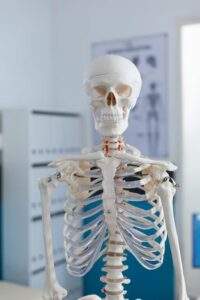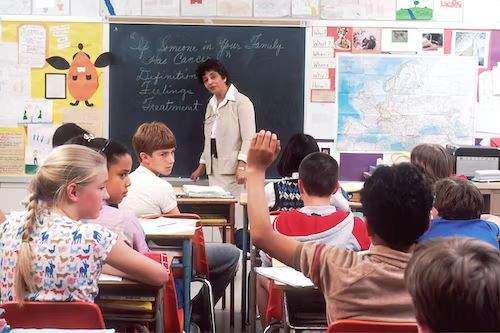Children exhibit an innate curiosity about their bodies from a very young age. As parents, guiding them through this process of body exploration is important for their development and well-being. This blog explains why body exploration is valuable and how to teach your kids about their tiny bodies.
The Importance of Body Exploration: Teaching The Basics
The most valuable result of making body exploration a natural part of childhood is providing children with a foundation of knowledge, comfort and confidence that lasts them a lifetime. By guiding them through this process with patience, honesty and empathy, you ensure they approach each new developmental stage with understanding and self-acceptance.

Learning the proper names of body parts and basic anatomy helps open communication lines to questions or address concerns.
Helping Your Kids With Body Exploration: A Step-By-Step Guide
Starting the Conversation
Opening the lines of communication about bodies, anatomy, and personal boundaries helps children feel comfortable coming to you with questions as they grow. Even from a young age, you can introduce basic body part names while bathing, dressing, or doing checkups. Use the proper terms rather than nicknames to normalize discussion. Be clear that some parts are private, but it’s okay to touch themselves if it feels good. Overall, your relaxed, matter-of-fact approach sets them up to confidently understand their bodies.
Promoting Body Positivity
In today’s image-obsessed culture, promoting a positive body image from the start is so important for children. When you look at and talk about your body, set a good example by being satisfied with what you see in the mirror rather than criticizing. Make sure to express pride in what their bodies can do rather than just what they look like. A positive foundation will serve them well as they grow.
Robert Schenkel’s Where is Your Nose? Takes young readers on an educational adventure to discover the various parts of their body. With bright illustrations, it captures children’s excitement as they learn about their eyes, nose, elbows, ears and knees.
Answering Tough Questions
As kids develop and gain exposure to new situations, they may start asking tricky questions about reproduction, sexuality, anatomy, or development. Have open and age-appropriate conversations to satisfy their curiosity in a caring, factual way. Give simple, honest answers they can understand rather than deflecting questions. With practice, you can guide discussions productively without causing undue embarrassment or confusion.
Understanding Bodily Functions
Exploring one’s body includes learning about key functions like going to the bathroom, bathing or showering, periods, erections, wet dreams, and more. Teach proper hygiene, encourage independent self-care skills, and answer related questions factually to reduce discomfort. With open communication, kids see their bodies’ functions as a normal part of life.
Maintaining Healthy Habits
Education on diet, exercise, sleep, stress relief, and other lifestyle habits is vital for raising physically and emotionally healthy kids. Guiding them toward healthy routines like proper nutrition, regular movement, adequate rest, and positive ways to handle big feelings gives them tools to care for themselves holistically as they age.
When you lead by example and involve your kids in lifestyle choices, they develop self-care awareness from within.

A comprehensive education also gives them the health literacy to care for themselves physically and emotionally.
Early Education: A Foundation for Life
Exploring and growing can raise questions about anatomy, growth, development and more. By taking a caring, thoughtful approach to body education from an early age, you empower your children with self-awareness, health literacy and body confidence that serves them well into adulthood.
If you have young ones curious to learn about their bodies, Where is Your Nose? By Robert Schenkel is a great children’s picture book to get them started.
Order your copy now and get started!

